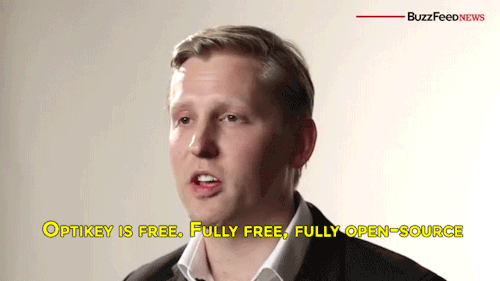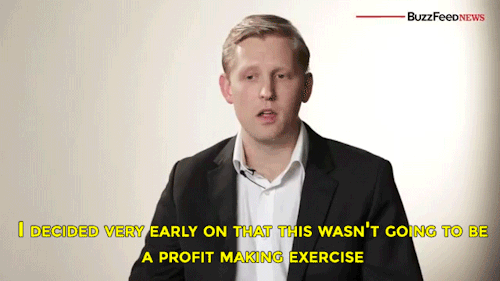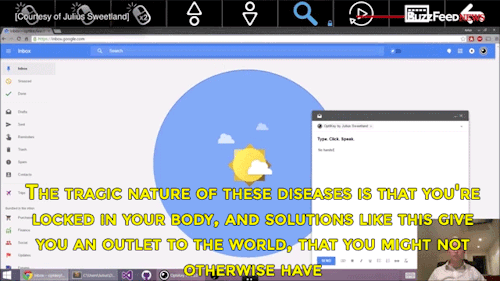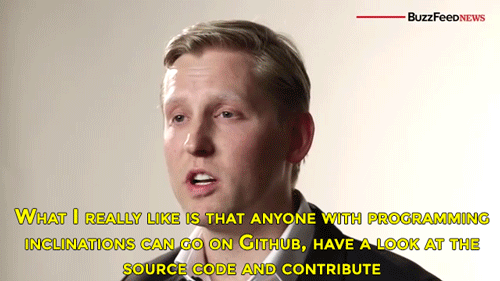Latest Posts by dotmpotter - Page 7


Digital mapping + solar = sustainable cities?
A new tool combines Google satellite imagery with light detection and ranging data, calculating the potential hourly solar energy production of a city.

UAV Will Determine Best Locations for Wind Energy

Next-Gen Pelamis Wave Energy Converter Successfully Passes Initial Tests
Amazing Maps of the World
(cross-posted on the MIT Center for Civic Media blog)
A few years ago when I was working on the Civic Commons project with Code for America and OpenPlans, I did a presentation at Living Cities called “Cities that Work Like the Web” which discussed using open standards and…

Tinysaur, Tiny Dinosaur Fossil Models You Can Build Yourself

What would be the effect of more women working in agriculture?
“The women I met in agriculture showed a clear preference for working on organic and small farms, which are more likely than factory farms to reflect the values of animal welfare, human health and environmental sustainability."
-Sonia Faruqi says on what she found when she spent time visiting farms in eight different countries.
Agriculture needs more women (The Atlantic)


Floating cabin in Washington State.
Photograph by Peter Baker.

Spatial Agency: Other Ways of Doing Architecture
Nishat Awan
This book offers the first comprehensive overview of alternative approaches to architectural practice. At a time when many commentators are noting that alternative and richer approaches to architectural practice are required if the profession is to flourish, this book provides multiple examples from across the globe of how this has been achieved and how it might be achieved in the future. Particularly pertinent in the current economic climate, this book offers the reader new approaches to architectural practice in a changing world. It makes essential reading for any architect, aspiring or practicing.

A Merry-Go-Round That Turns The Power Of Play Into Electricity - Vlad Vilenski posted in Green, Electricity and Non Profit
Empower Playgrounds is a nonprofit that has come up with an intriguing solution: Harnessing the power of play, it provides merry-go-rounds to schools in Ghana that generate and store electricity as they are spun around, even while teeming with laughing and smiling kids.
Continue to fastcodesign.com

ADB Finances Renewable Energy Transmission System in India

Fly to Mars without leaving home!
A couple people asked me about this little clip from my “Why Do We Go To Space” video (<- requisite plug for my YouTube show). What you’re seeing on my iPhone screen there is a 360-degree panorama of the Martian surface as captured by the Curiosity rover.
You can view it here. It works great on your computer, but the real magic is when you view it on your phone or tablet.
Congratulations. You’re a space traveler!
This Week in Social Entrepreneurship: Weh Yeoh tells us who sets the international development agenda (hint: it's you!)
Come out for the NY+Acumen Happy Hour and Jeopardy Night Wednesday night, October 16th. It will be an exciting evening at Galway Pub where all questions (errr…answers, rather) in the game will be based on a social entrepreneurship related case study. And, as always, there will be time for drinks and conversation.
On Tuesday, October 15th join Be Social Change and the Centre for Social Innovation for NY Social Good. This is a new event series featuring for- and non- profit ventures developing innovative approaches to tackling the toughest problems facing our generation.
Make a Wave is a start-up readiness program aiming to provide 250 women in UK foundational skills to think about social enterprise. They are searching for women based in UK, over 18, and committed to attending a business skills bootcamp, among other credentials. If you are interested, read more about this program and how to apply here.
Learn how, as a student, you can get involved with social enterprises during this live Q&A on Tuesday, October 8th with the Guardian Social Enterprise Network. Learn not only how you can get involved as a student, but also how you can benefit from social enterprise and even how you can start your very own!
Who sets the agenda when talking about international development? We, as ordinary citizens, have the power to collectively shift the government’s agenda. Check out this Huffington Post article written by Weh Yeoh, who is currently running a campaign on StartSomeGood to Bring Speech Therapy to Cambodia.
Shawn D. Ross

I am a Northwest Native living in Washington State. A graduate of Washington State University and University of Phoenix with degrees in Architecture and Education I write about social, cultural, and personal improvement on the StartSomeGood Blog and SDRinspire. I am also a filmmaker and owner of Giraffe and Penguin Productions, a single daddy of two beautiful children, avid reader, writer, and hat wearer (Not in that picture but believe me, I wear ‘em). I am currently at work on my first feature length documentary. Follow me @shawndross and visit my websites: sdrinspire.tumblr.com and giraffeandpenguinproductions.tumblr.com.
_________________________________________________________________
What good do you want to create? Visit our site to learn about how to start your own campaign.
Do you have a social entrepreneurship news story or an event you’d like to see on the StartSomeGood Blog? Email Nicole (Nicole @ StartSomeGood.com)
“We have an opportunity to re-think how we regulate city activities for the public interest. I think the big opportunity is to harness the data streaming out of all of these activities and use it to enable a more permissive, but more accountable, “2.0” regulatory regime.”
- Nick Grossman
By focusing on peer-to-peer urbanism, we would be able to create more functional and enjoyable communities while using less resources through sharing — both on and offline. By working collaboratively, there’s an opportunity to create solutions for the masses at a lower cost for the government, and therefore for tax payers. It’s problem solving by community.
Check out the interesting examples of user-generated urbanism, agile urbanism, and today’s peer-to-peer urbanism movement in Nick’s post.
(via loyalcx)

The asteroid Nemesis is named after a Greek goddess who wields an apple branch, lash and sword. She is know for setting the scales right and often identified with revenge. The asteroid is in play with today & tomorrow’s cosmic weather. Good time to ask yourself who, or what, is your worst enemy and what role you play in the dynamic. And maybe make some #apple #tarts too….,

Of the 24 MacArthur genius grant recipients, 11 of them were women. Here’s a look at who they are, what they do and why you should pay attention to them.
MacArthur’s genius women (The Daily Beast)

A new online platform to promote women’s economic empowerment is here! UN Women and the Government of Canada recently launched an online platform, the Global Knowledge Gateway for Women’s Economic Empowerment, which aims to re-vitalize women’s economic empowerment by building connections, and providing users with tools and resources necessary to be empowered. Get the link to this exciting new initiative here: www.empowerwomen.org

How To Make Solar Cells Without Toxic Materials

Researchers find non-toxic way to make thin film solar cells…
Follow me on Twitter and Google+.
Image: “A surfactant template guides the self-assembly of functional polymer structures in an aqueous solution” by Youngkyu Han and Renee Manning, via Oak Ridge National Laboratory.
Robot Taxi: autonomous mobility for senior citizens in rural areas
Autonomous mobility. A future market, everyone is targeting: Google, Uber, Tesla, Apple, Baidu and a bunch of old-econmoy automotive players. Everybody wishes to triumph with its technology. But have you heard of :DeNA?
The Japanese tech company (originally a mobile gaming company with a net worth of over $1 billion) wants to develop the best smartphone-driven orchestration software for a fleet of robocars. :DeNA just started a new company called “Robot Taxi”, with - not surprisingly - a lucrative future robo-taxi market in mind. The nice thing is, however, that they initially don’t aim for the young urban metropolitan-elite, but rather focus on rural areas and senior citizens. Gizmodo has the story:
Today, it was announced that road tests will begin next year in Kanagawa prefecture, south of Tokyo. Fifty people will travel in trips of two miles from their homes to grocery stores, with a Robot Taxi employee on board as a safety precaution, the Wall Street Journal reports. And the demographics the company is targeting? Senior citizens, and people with no access to public transportation.
Certainly, Japan has a demographic problem and the societal views on robots differ immensely to the rest of the world. But it’s refreshing to see, that (profit oriented) companies exist, which are working on future services with people in mind.
[Robot Taxi] [via gizmodo] [read more about DeNA]

In the San Joaquin Valley, a legacy of shortsighted land-use planning has intensified the water crisis for poor residents.
[Image: Laura Bliss/CityLab]

As a psychologist, particularly one of a therapeutic bent, I never felt much like a scientist. I mean, we’re fluffy bunnies in the world of “proper” science, no matter how much we talk about epistemological theory or Feyerabend’s ideas or squeeze gratuitous Greek letters and geometry style diagrams into our work.
As a lingerie professional, however, I’m sometimes quite scared about how little the industry seems to know about what it means to be scientific.
Shaken: cocktail kits by mail


Shaken is a UK startup that sells subscriptions to “the best cocktails you’ve ever made.” Every month, they send you a handsome box with several bottles of rare and delicious booze, small-batch bitters, and a cocktail recipe explaining the history, chemistry and practice of some classic or novel cocktail.
You bring this stuff into your kitchen and play with it, mixing drinks according to the recipe or its variants, or your taste, according to your preference. They supply everything except ice, fruit, shakers and glassware, and each box has enough booze for four drinks.
The Shaken folks took over my old offices in London when I moved to LA this summer and I got to try some of their packages before I left. They turned me on to what is literally some of the best booze I’ve ever drunk (particularly the Plantation rums, which are finished in Cognac casks and taste like nothing you’ve ever tried before – there’s one that finishes exactly like a smoky Islay, which is indescribably brilliant).
Shaken doesn’t assume that you’re a hardcore cocktail fan, and the recipes are simple to follow. But they strike a great balance for people who want to go beyond, with ideas for refining and improving the basic recipe.
The boxes are no-obligation and you can skip a box any time you feel like it.
Read the rest
Big Data's religious faith denies the reality of failed promises, privacy Chernobyls

Maciej Ceglowski (previously) spoke to a O'Reilly’s Strata Big Data conference this month about the toxicity of data – the fact that data collected is likely to leak, and that data-leaks resemble nuclear leaks in that even the “dilute” data (metadata or lightly contaminated boiler suits and tools) are still deadly when enough of them leak out (I’ve been using this metaphor since 2008).
Ceglowski also raises a critical point: Big Data has not lived up to its promises, especially in life sciences, where we were promised that deep analysis of data would yield up new science that has spectacularly failed to materialise. What’s more, the factors that confound Big Data in life science are also at play in other domains, including the business domains where so much energy has been expended.
The key point is that people react to manipulation through Big Data: when you optimize a system to get people to behave in ways they don’t want to (to spend more money, to click links they aren’t interested in, etc) then people adapt to your interventions and regress to the mean.
Big Data’s advocates believe that all this can be solved with more Big Data. This requires them to deny the privacy harms from collecting (and, inevitably, leaking) our personal information, and to assert without evidence that they can massage the data so that it can’t be associated with the humans from whom it was extracted.
As Ceglowski puts it, ‘people speak of the “data driven organization” with the same religious fervor as a “Christ-centered life”.’
Read the rest

A Smart Menstrual Cup That Tracks Your Period And Makes Sure You’re Healthy http://ift.tt/1Ltl8JD

The Fracking Science Compendium by Physicians for Social Responsibility shows overwhelming harms. Learn more below:
http://concernedhealthny.org/compendium/ http://www.psr.org/resources/fracking-compendium.html



Watch: How a simple photo edit perfectly illustrates the importance of gender equality.
When Firms Become Persons and Persons Become Firms: outstanding lecture

UC Berkeley Political Scientist Wendy Brown came to the London School of Economics last week to discuss her book Undoing the Demos, and her lecture (MP3) is literally the best discussion of how and why human rights are being taken away from humans and given to corporations.
Brown looks at the human rights enumerated in the US Bill of Rights, and how they have been interpreted in successive Supreme Court rulings like Hobby Lobby (corporations are people whose religious freedom entitles them to deny contraception to their workers) and Citizens United (corporations are people and have the free speech right to buy politicians). She suggests that these have been misread as merely conservative/business-oriented thinking gaining influence, and that rather, they are best understood as an ongoing project that grants personhood to companies at the expense of real people.
Brown speaks for more than an hour with almost no poli-sci/econ jargon, building elegant, beautiful arguments that should be accessible to anyone. If you listen to anything this weekend, make it this.
Neoliberal rationality — ubiquitous today in statecraft and the workplace, in jurisprudence, education, and culture — remakes everything and everyone in the image of homo oeconomicus. What happens when this rationality transposes the constituent elements of democracy into an economic register? In vivid detail, Wendy Brown explains how democracy itself is imperiled. The demos disintegrates into bits of human capital; concerns with justice cede to the mandates of growth rates, credit ratings, and investment climates; liberty submits to the imperative of human capital appreciation; equality dissolves into market competition; and popular sovereignty grows incoherent. Liberal democratic practices may not survive these transformations. Radical democratic dreams may not either.
In an original and compelling theoretical argument, Brown explains how and why neoliberal reason undoes the political form and political imaginary it falsely promises to secure and reinvigorate. Through meticulous analyses of neoliberalized law, political practices, governance, and education, she charts the new common sense. Undoing the Demos makes clear that, far from being the lodestar of the twenty-first century, a future for democracy depends upon it becoming an object of struggle and rethinking.
Undoing the Demos: Neoliberalism’s Stealth Revolution [Wendy Brown/Zone Books]
When Firms Become Persons and Persons Become Firms: neoliberal jurisprudence in Burwell v. Hobby Lobby Stores [LSE]
MP3







